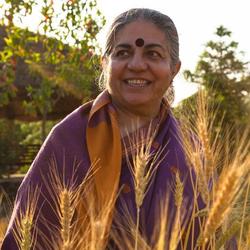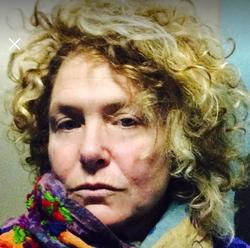The New Social Environment#38
Dr. Vandana Shiva with Lauren Bon
Featuring Shiva and Bon
to
1 p.m. Eastern / 10 a.m. Pacific
Scholar and activist Dr. Vandana Shiva joins Rail contributor Lauren Bon for a conversation.
In this talk
Dr. Vandana Shiva

Dr. Vandana Shiva is an Indian scholar, environmental activist, food sovereignty advocate, and anti-globalization author.
Lauren Bon

Based in Los Angeles, Lauren Bon is an environmental artist and her practice, Metabolic Studio, explores self-sustaining and self-diversifying systems of exchange that feed emergent properties that regenerate the life web. Works include Not A Cornfield, which transformed and revived an industrial brownfield in downtown LA into a 32-acre cornfield and 100 Mules Walking the Los Angeles Aqueduct, a 240-mile performative action that aimed to reconnect the city of LA with the source of its water for the centenary of the opening of the LA Aqueduct. Her studio’s current work, Bending the River Back into the City, aims to utilize LA’s first private water right to deliver 106-acre feet of water annually from the LA River to over 50 acres of land in the historic core of downtown LA.
❤️ 🌈 We'd like to thank the The Terra Foundation for American Art for making these daily conversations possible, and for their support of our growing archive.